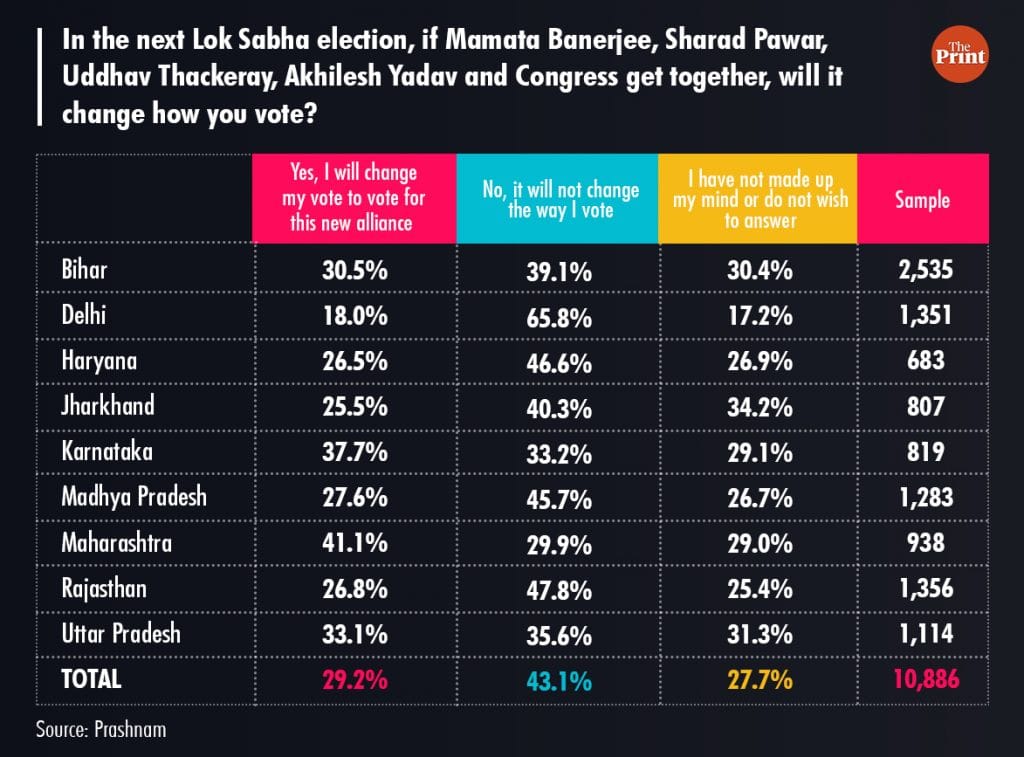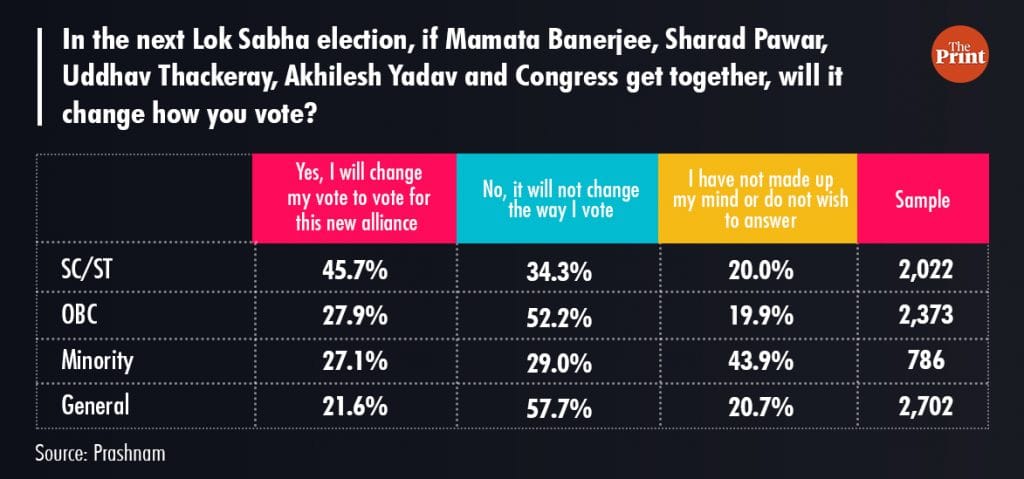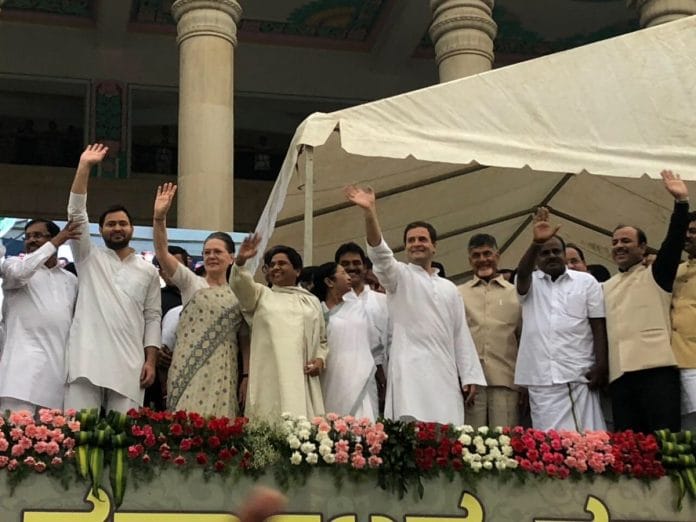Breakfasts, dinners, and politics –these have been the buzzwords in Delhi media over the past few weeks. The ‘Unified Opposition’ is the flavour of the season. Parliament witnessed a sudden burst of frenetic activity, not inside its halls but outside as well in the form of leaders posing for pictures with joint hands, addressing press conferences and bonding publicly over food. It was a ‘feast’ of political stories for Delhi media.
The ‘Index of Opposition Unity’ has often been touted by political experts as the weapon to defeat the ruling Bharatiya Janta Party (BJP). Specialists and Delhi media apart, what do voters think of such tactics? Can a mathematical summation of various parties’ votes be greater than the chemistry of the BJP with Indian voters? Prashnam decided to find out this week.
We asked nearly 11,000 voters across nine states — Uttar Pradesh, Maharashtra, Bihar, Madhya Pradesh, Karnataka, Rajasthan, Jharkhand, Haryana, and Delhi — covering nearly 1,500 assembly constituencies, one simple question in the local language:
“For the next Lok Sabha election, if Mamata Banerjee, Sharad Pawar, Uddhav Thackeray, Akhilesh Yadav and Congress get together, will it change how you vote?”
They were given the following response options: ‘Yes, I will change my vote to vote for this new alliance’; ‘No, it will not change the way I vote’; and ‘I haven’t made up my mind or do not wish to answer’.
The states were chosen since they are all large and have a strong BJP presence because the idea behind Opposition unity is to take them on. Those states, which had assembly elections recently were excluded.
The survey was designed to elicit responses to a change in voting preferences caused by this alliance formation, not to know if people approve of this alliance. However, the difference is subtle and may not have been perceived in this manner by respondents. This is a classic occupational hazard of polling where respondents can interpret the question in their own manner and provide responses that may be different from the intent of the survey. Nevertheless, we will provide one interpretation of the results below but since Prashnam always makes the raw data and the actual question asked available for public use, readers may choose to interpret it in other ways if they so desire.
Also Read: Opposition unity is one of the laziest ideas. And irrelevant for most states
Endorsement for the Opposition unity

Clearly, there are more voters who think an Opposition unity will not change their voting behaviour. It could also well mean that pre-decided BJP voters do not approve of Opposition unity while non-BJP voters do. The reason for any political formation to come together is to consolidate support and win elections. From the results of the survey, it is clear that this consolidation is yet to happen.
The other interesting facet is the inter-state differences in responses to the same question. Voters in Maharashtra and Karnataka approve of the ‘Opposition unity’ idea while voters in Delhi, Haryana, Madhya Pradesh, and Rajasthan overwhelmingly disapprove. In the important states of Bihar and UP, opinion seems divided on Opposition unity.
Also Read: Why Modi government is confident of a win in 2024 & how to build a coalition, Vajpayee style
SC/STs all for it, but OBCs are not
The other interesting finding is the sharp division in opinion among Scheduled Caste/Scheduled Tribe voters and Other Backward Class voters.

An overwhelming number of SC/ST voters endorse the idea of Opposition unity while OBC voters do not. The fact that upper caste voters do not endorse it is perhaps expected, given that a significant number of them tend to be BJP voters. But the straight divide between SC/ST and OBC voters on this issue is significant given they form the two largest socio-identity voting groups in these states.
The simple truth is that if people continue to vote the way they did in 2019 or 2014, the BJP will garner a clear victory. The only way to defeat the BJP is to bring about a change in voting preferences mathematically, or through narratives. The Opposition unity is pitched as the one and only way to defeat the BJP election machine. It may be seen with some scepticism, but it is still pitched as an alternative.
Prashnam, in keeping with its principles of transparency and integrity, makes available the entire raw data of this survey here for analysts and researchers to verify and analyse further. Readers can write to us at contact@prashnam.ai.
Rajesh Jain is founder, Prashnam, an AI technology start-up that aims to make opinion gathering more scientific, easy, fast, and affordable. He tweets @rajeshjain. Views are personal.
The article is part of ThePrint-Prashnam Vox Pop series.
(Edited by Srinjoy Dey)






